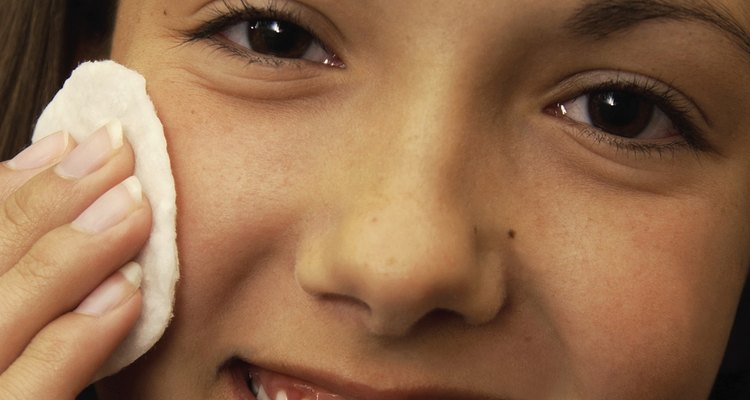
Liquidlibrary/liquidlibrary/Getty Images
Facial toner is a skin care product that offers different benefits depending on the type of toner used. It can soak up excess oil and remove dirt, makeup and dead skin cells; restore your pH balance; and condition and moisturize your skin. Toner will also prepare your face to absorb the products you apply after. It typically comes in a liquid form, although some toners are formulated as gels or mists. A toner can be used alone or as part of a skin care regimen.
Select an appropriate facial toner for your skin type and budget. If you suffer from acne, select a toner specifically indicated for this condition. If you need help finding the right toner, consult with a dermatologist, skin care specialist or an experienced sales associate.
Read the manufacturer's instructions for your facial toner and follow them. If the manufacturer's instructions differ from the content in this article, always follow the manufacturer's instructions.
Wash your face with your regular facial cleanser and pat your face dry with a clean towel. This step is optional, as some people prefer to use facial toner on its own.
Apply a small amount of liquid facial toner to a cotton ball or pad. Take care not to saturate the cotton ball or pad with the facial toner but use just enough so that it glides easily over your face.
Move the cotton ball or pad gently in small circles across your face, paying special attention to your chin, nose, cheeks and hairline. Avoid your eyes, nostrils and mouth.
Repeat the process with a fresh cotton ball or pad until you no longer see dirt and debris on the cotton ball or pad. This step is optional; sometimes using just one cotton ball or pad is sufficient.
Wait at least one minute for the toner to dry on your face. Toner is not meant to be washed off. Then, if desired, apply your favorite moisturizer or serum.
Related Articles
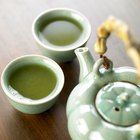
Are Apple Cider Vinegar & Green Tea ...

Are There Ways to Get Rid of Blocked ...
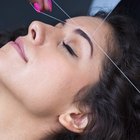
How to Get Rid of Pimples After Eyebrow ...

How to Reduce Facial Redness From ...

Help for Red Marks After Facials

How to Mix Honey, Lemon Juice and Olive ...

How to Use Vaseline as a Moisturizer ...
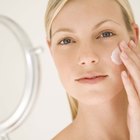
How to Get Rid of Fine Blond Hair on My ...

Yogurt Face Mask for Acne

How to Even Out Skin Tone Without Makeup

How to Get Rid of All the Tiny Embedded ...

How to Remove a Dilated Pore on the ...

What Are the Benefits of Lemon Juice ...

How to Exfoliate Legs for Shaving

Can Any Home Remedies Get Rid of Acne ...

How to Stop Facial Redness From Shaving
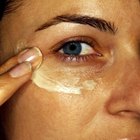
The Best Facial Moisturizer That Won't ...

List of Retinoids

How to Heal an Inflamed Bikini Area

How to Use Pyrithione Zinc for Rosacea
References
Resources
Tips
- Replace the cap on the bottle of toner immediately after use to prevent the toner from evaporating.
Warnings
- It can be dangerous to ingest facial toner or get it in your eye. If ingestion or eye contact occurs, follow the manufacturer's instructions for these situations and -- if necessary -- call the poison control hotline or visit your local emergency room.
- If irritation or an adverse reaction occurs after using a facial toner, immediately discontinue use and consult a doctor.
- Keep facial toner out of reach of children and pets.
Writer Bio
Lisa S. Kramer is a licensed attorney practicing civil litigation and estates and trusts law in southern Florida. She received her Bachelor of Arts in English from the University of Florida, where she graduated Phi Beta Kappa and cum laude. Kramer earned her Juris Doctor from the University of Florida Levin College of Law.
Photo Credits
Liquidlibrary/liquidlibrary/Getty Images